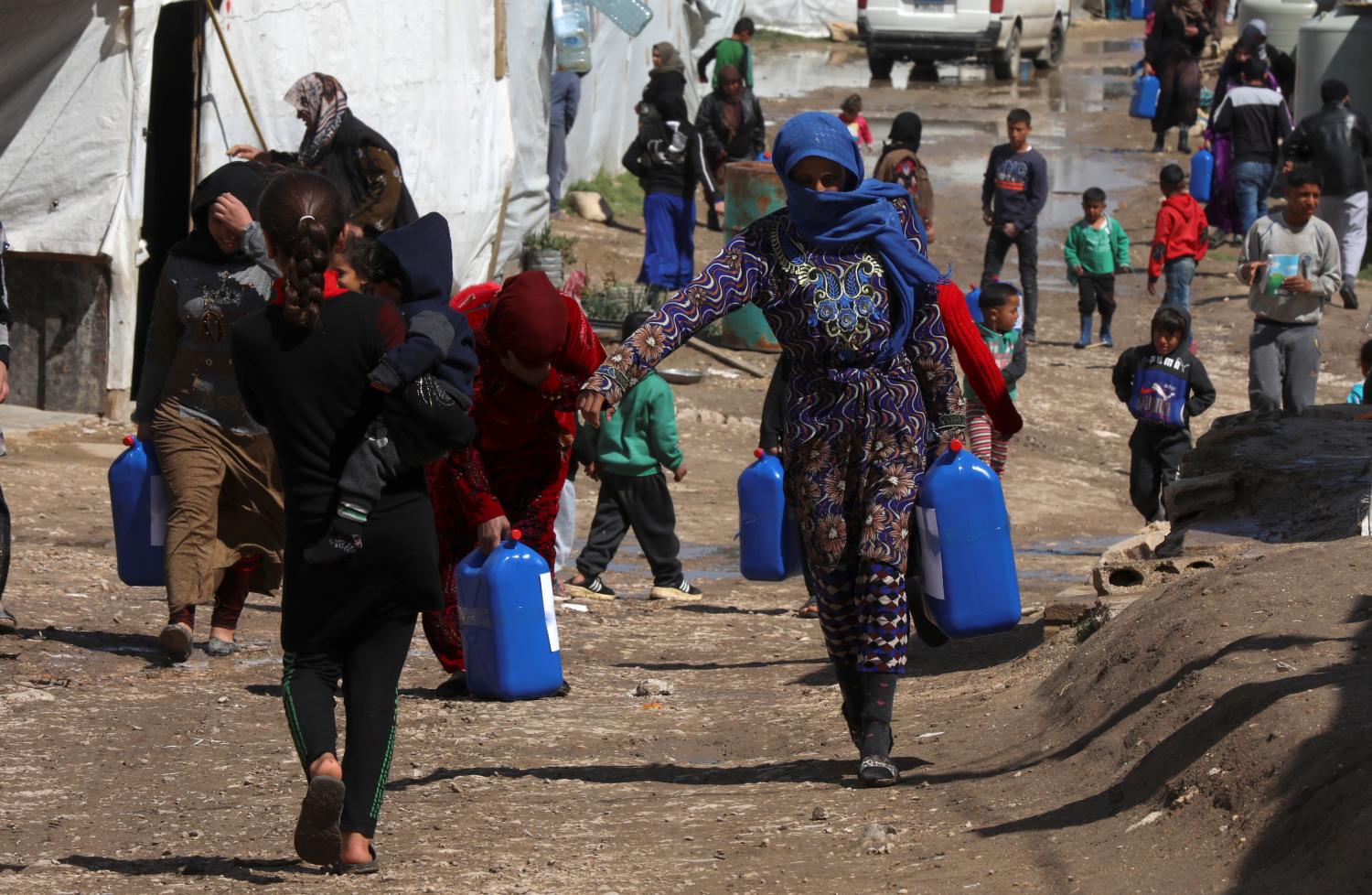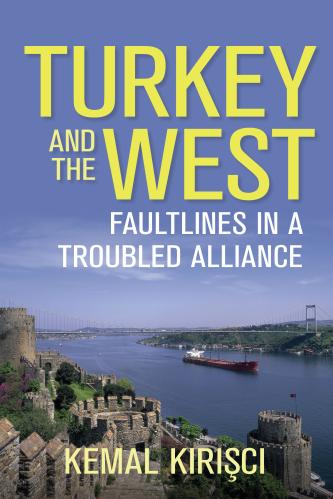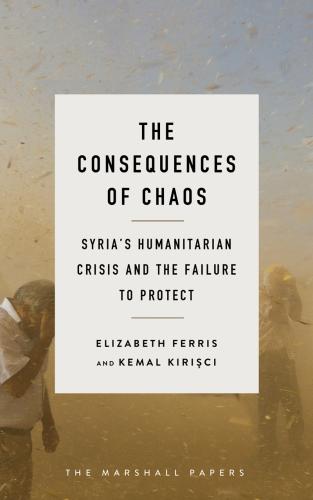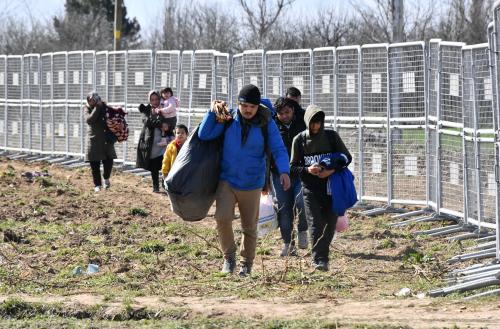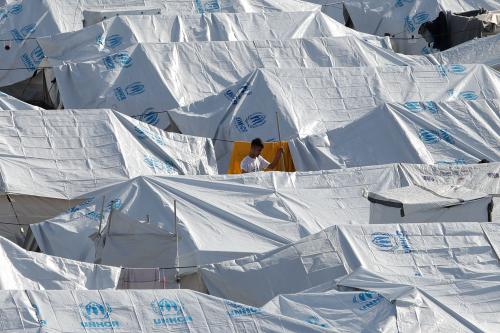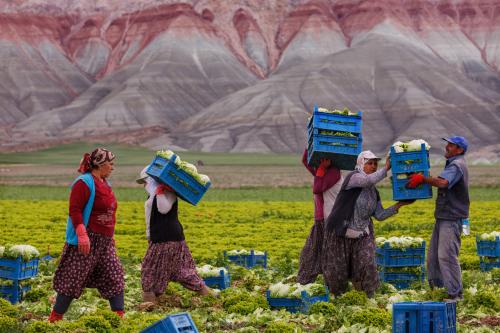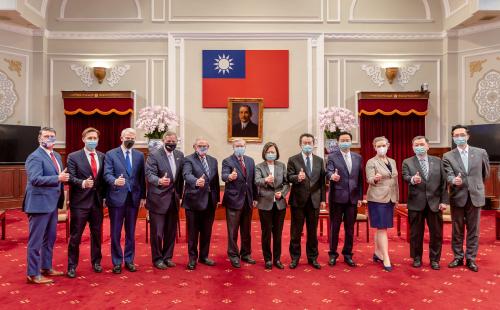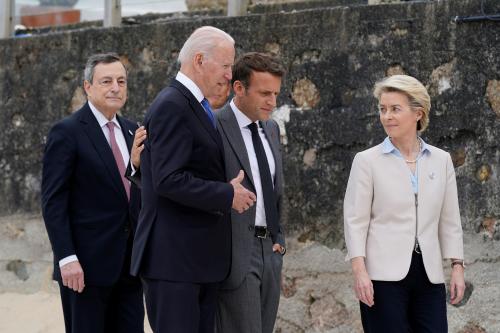Kemal Kirişci argues that the time is right to revisit the EU-Turkey Framework, and in particular, to adapt the Facility for Refugees in Turkey to shift from humanitarian assistance to a developmental focus to help create livelihood opportunities for refugees. This paper was originally published by the Hellenic Foundation for European and Foreign Policy (ELIAMEP) in April 2021.
EXECUTIVE SUMMARY
A conflict and tension dominated 2020 in Greek-Turkish and EU-Turkish relations appears to be subsiding and the European Council statement of March 25 offers a possible framework for a return to dialogue and diplomacy. This framework, primarily focused on the Eastern Mediterranean, also provides room for revisiting the EU-Turkey statement of March 2016, a statement that had many opponents and whose implementation faced multiple grievances and recriminations from both sides.
In the interim, however, the emerging positive climate offers the possibility to expand cooperation in a relatively successful but inadequately appreciated part of the EU-Turkey statement known as the Facility for Refugees in Turkey (FRIT). Expanded cooperation must consider that, with no prospects of resettlement and significant return to Syria, the presence of 3.6 million Syrian refugees in Turkey has become a protracted one. This calls for FRIT to shift from a humanitarian assistance to a developmental focus and help create livelihood opportunities for refugees to improve their self-reliance and social inclusion into their host communities.
The external dimension of the European Commission’s “New Pact on Migration and Asylum” proposal falls short of offering constructive policy ideas able to transcend the EU’s long-standing policy of externalizing the cost and responsibility of managing its external borders to countries outside the EU. The Global Compact on Refugees (GCR) adopted in December 2018 and endorsed by all EU members, except Hungary, advocates, inter alia, for the promotion of “economic opportunities, decent work, job creation and entrepreneurship programs for host community members and refugees” in countries hosting them. A carefully crafted arrangement between the EU and Turkey granting concessions that would enable Turkey to expand its agricultural exports, not covered by the customs union, to the EU can help spur sustainable employment both for refugees and locals.
Other policy suggestions, ranging from revamped resettlement to exploring avenues of safe return to Syria for those interested, as well as funding for humanitarian assistance for the IDPs amassed on the Turkish border will need to be incorporated into an EU-Turkey package deal to help address the dilemma of relative gains and achieve a true partnership and a “win-win” outcome.
There is an important role for Greece to play, especially if Greece, as a frontline country in migration management, would like to play a role that is not limited to being just “Europe’s ‘shield’”: a role that has not been particularly benevolent for Greece’s image in terms of human and refugee rights. Greece, as a country with an important stake in the EU’s migration policy, could pursue these policy ideas through the decision-making channels of the EU.

